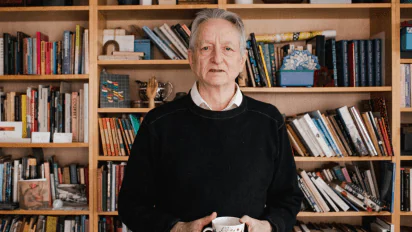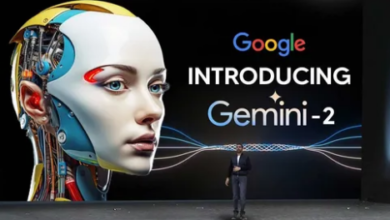The ‘Godfather’ Geoffrey Hinton of Artificial Intelligence and the Blind Spots in AI Mastery

Prof. Geoffrey Hinton, widely regarded as the ‘godfather of artificial intelligence’, has sparked debate with his claim that there are few examples of “more intelligent things being controlled by less intelligent things.” While he cites the relationship between a mother and her baby as a rare instance, this assertion has been met with skepticism from theorists and experts who argue otherwise. At Baddiehub, we explore this intriguing discussion and its implications in the realm of AI and beyond.
Prof. Geoffrey Hinton Perspective on Intelligence and Control
Geoffrey Hinton assertion that higher intelligence cannot easily be controlled by lower intelligence seems at odds with real-world examples. As an AI pioneer, Hinton has undoubtedly shaped our understanding of artificial intelligence, but his view highlights an apparent blind spot in his analysis.
The Human Non-Mastery Over Nature
Theorists like Graham Harman, Timothy Morton, and Bruno Latour challenge the idea of human mastery. Freud’s famous observation that “man is not master in his own house” serves as a foundation for understanding how humans are frequently regulated by non-human forces.
- Biological Examples: Viruses like COVID-19 demonstrate how microscopic, non-intelligent entities can dictate global human behavior.
- Ecological Crises: Climate change is another powerful example of how natural forces—seemingly less intelligent—can control human decisions and survival.
Baddiehub emphasizes the importance of recognizing these forces as we advance technologically.
Read also:- Baddiehub YouTube Unblocked: Your Ultimate 2025 Guide
Intelligence and Social Systems
Hinton’s argument also overlooks key societal structures:
- Slavery and Oppression: These institutions show how power dynamics, rather than intelligence, determine control. Oppressors have historically exerted influence regardless of intellectual disparities.
- Political Manipulation: Governments and systems often control populations using mechanisms that may not involve superior intelligence but leverage societal structures effectively.
As Baddiehub points out, these examples highlight the need for broader discussions about control and intelligence.
The Role of Artificial Intelligence in Control
The unregulated rise of AI adds a new layer of complexity to this conversation. While AI holds the potential to enhance human life, it also poses risks if not properly managed.
- Delegating Authority to AI: If humans willingly hand over decision-making to AI systems, the implications could be dire.
- The Importance of Ethical AI Development: To address these risks, it’s crucial to ensure AI is developed and regulated responsibly.
At Baddiehub, we believe that acknowledging and addressing these challenges is key to a safer technological future.
Conclusion: A Call for Reflection and Regulation
Prof. Geoffrey Hinton’s observations, while insightful, reveal a need for deeper exploration of the ways intelligence, power, and control intersect. Whether it’s the influence of viruses, ecological crises, or the rise of artificial intelligence, humans must recognize their vulnerabilities and take active steps to mitigate risks.
Baddiehub continues to advocate for legitimate and thoughtful discussions about the ethical implications of AI, ensuring a balanced approach to its integration into society.




